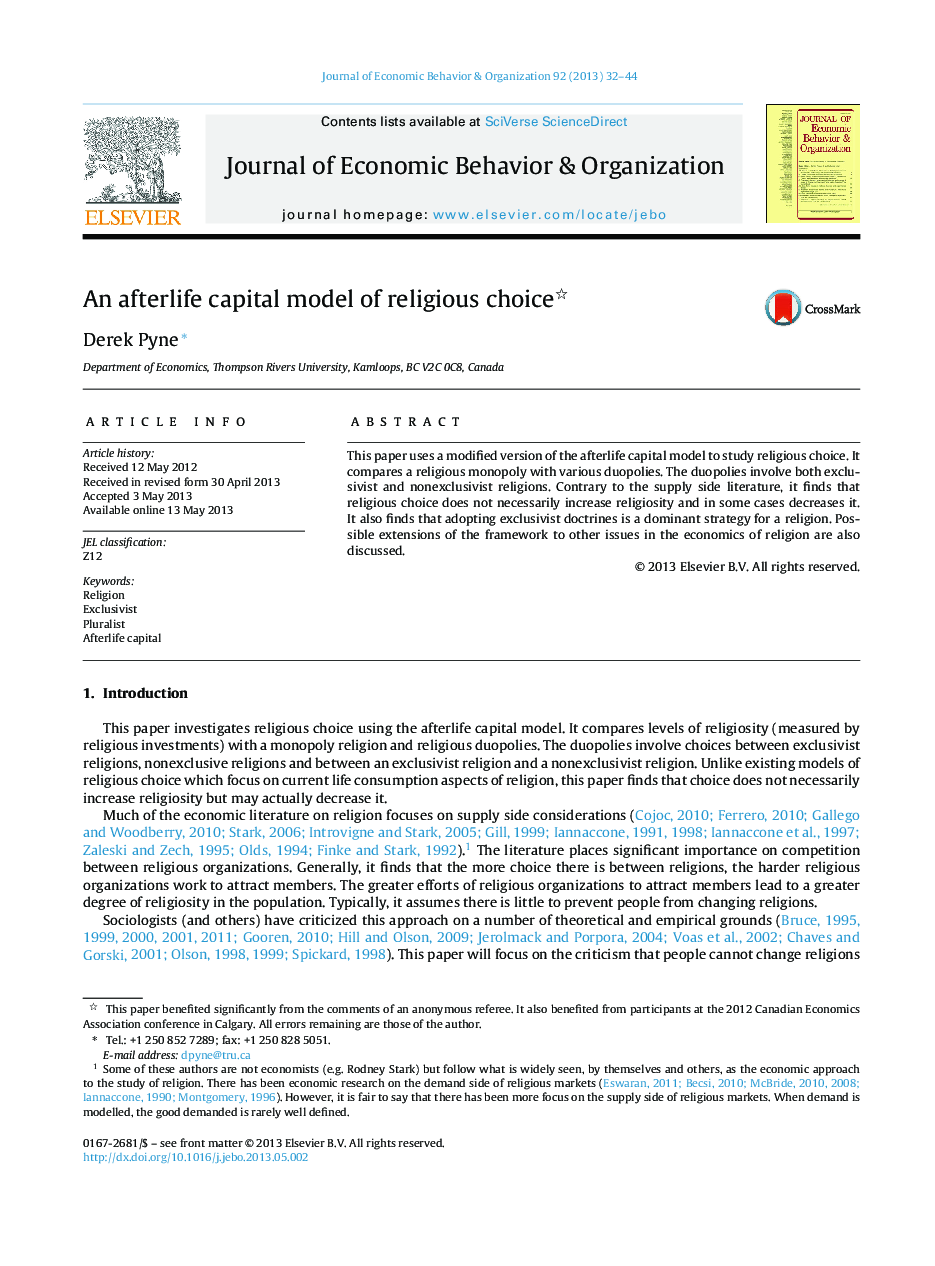| Article ID | Journal | Published Year | Pages | File Type |
|---|---|---|---|---|
| 7243747 | Journal of Economic Behavior & Organization | 2013 | 13 Pages |
Abstract
This paper uses a modified version of the afterlife capital model to study religious choice. It compares a religious monopoly with various duopolies. The duopolies involve both exclusivist and nonexclusivist religions. Contrary to the supply side literature, it finds that religious choice does not necessarily increase religiosity and in some cases decreases it. It also finds that adopting exclusivist doctrines is a dominant strategy for a religion. Possible extensions of the framework to other issues in the economics of religion are also discussed.
Related Topics
Social Sciences and Humanities
Economics, Econometrics and Finance
Economics and Econometrics
Authors
Derek Pyne,
